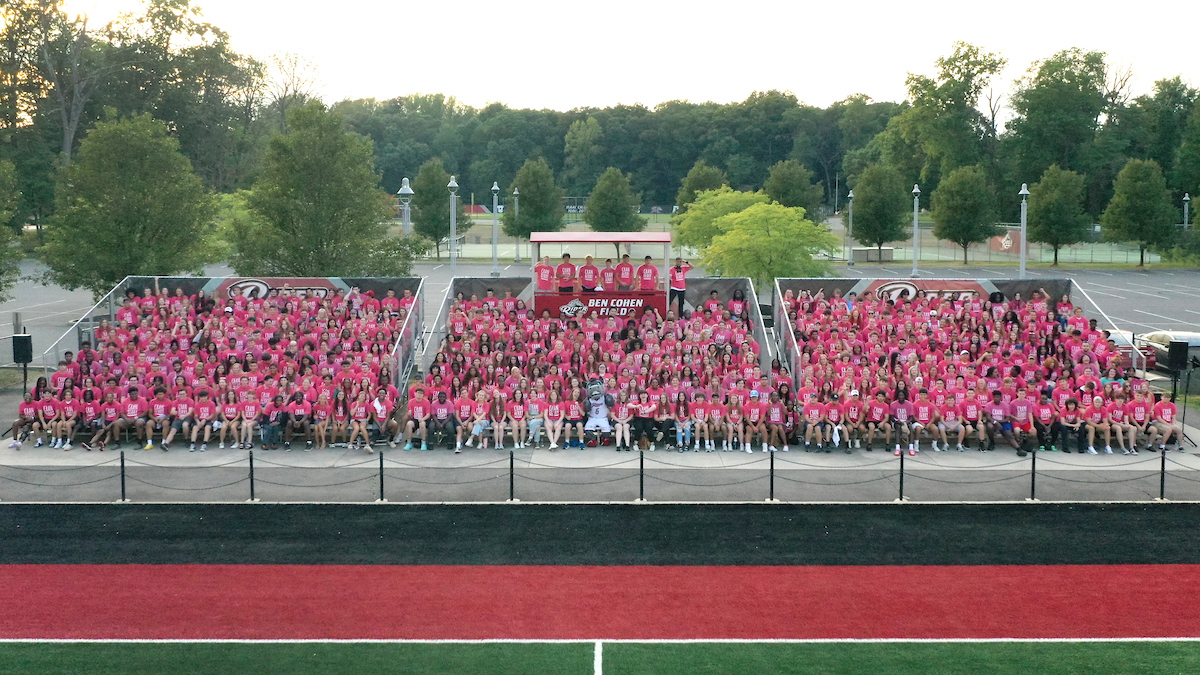Friday, Sep 9, 2022
Students embrace new First-Year Experience to ease transition to college
by Rachel Stengel '14, '20
Rider welcomed the Class of 2026 this fall. Eager to begin their journey as Broncs, the class is the first to participate in the University's new First-Year Experience program. The robust program is designed to ease the transition to college and set students up for success in the classroom and beyond. Each student is paired with a personalized team to guide them through their collegiate career and a number of programs, events and activities are intended to expose students to the wealth of opportunities available to them.
"It's always exciting to welcome a new class to the University," says Rider President Gregory Dell'Omo, Ph.D. "There are unlimited opportunities for students to get involved beginning on day one. Through our new First-Year Experience program, students are exposed immediately to the variety of ways they can shape their college experience and put them on a path toward a successful career."
The Class of 2026 hails from 25 states with about 73% calling the Garden State home. Nine students are already very familiar with Lawrenceville, New Jersey, as their hometown. Approximately 3% of new students are international, representing Australia, Canada, China, Cyprus, the Dominican Republic, Germany, India, Korea, Mexico, the Netherlands, New Zealand, Norway, Pakistan, Peru, Portugal, Saudi Arabia, Senegal, South Africa, Spain, Sweden, Turkey, Uganda, the United Kingdom and Vietnam.
Family ties run deep for 9.5% of the Class of 2026 who are legacy students, meaning they have a family member who previously attended Rider. Fourteen students have had multiple family members attend Rider.
Following trends from previous classes, nearly 48% of new students are from underrepresented groups; this compares to approximately 46% of all undergraduate students. Also, 36% of students report they are first-generation students.
Olivia and Matthew are the most popular names among the Class of 2026. Approximately 55% of new students identify as female, while 45% identify as male.

